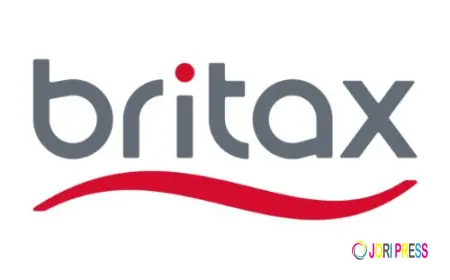Web Maintenance Services | Types of Web Hosting Maintenance Firms
Choose IMatrix Digital, Where Every Click Counts and Every Pixel Matters.

Web maintenance services are the process of constant checking, updating, and enhancement of a website to allow optimum performance. These services encompass a broad spectrum of activities, including technical updates as well as user experience enhancement. It is aimed at ensuring that your website is running well, free of threats to the system, and is working in line with your business goals.
In simpler terms, the process of web maintenance can be considered as regular check-ups of your site, similar to the way you take care of a car. Even the most well-designed websites will become slow, vulnerable, or outdated without appropriate upkeep.
Web Maintenance Services
Here are the following Key Components of Web Maintenance Services:
- Content updates: Web content (text, pictures, and multimedia) should be updated regularly to ensure that it remains relevant, interesting, and user and search engine-friendly.
- Software upgrades: To ensure security, compatibility, and smooth operation of the website, all software, CMS, plugins, and frameworks must be updated regularly.
- Website backup: Back up all content of the web pages, databases, and settings regularly to avoid loss of data and facilitate a fast recovery in case of an emergency or failure.
- SEO: It is necessary to constantly optimize the structure of the website, content, metadata, and technical factors to obtain a higher position in search engines, gain more visibility, and generate more organic traffic.
- Browser compatibility test: Check the look and functionality of the web pages in more than one browser and on more than one device so that all visitors can be guaranteed the same performance and experience.
- Better user experience: It must simplify the site, the layout, the design, and the interaction, making navigating it less cumbersome, more entertaining, and efficient for all users.
- Surveillance of security: Security surveillance is essential since it is necessary to monitor the website, server logs, and user tracks to prevent any security intrusion or cyber attack.
- Security patches: Update and patch regularly to combat security vulnerabilities and enhance security, and prevent malware, hackers, and other security attacks against the site.
- Analytics: Keep track and analyze web activity such as web traffic, user behavior, conversion, and interaction to make decisions and improve performance in general.
- Backup and recovery: It can be mentioned that a good backup and recovery program should exist, such that the site can be restored online in case of a crash, failure, or loss of data.
- Speed of the site: Optimize images, scripts, server settings, and code to make the site as fast as possible to load pages and enhance performance and the user experience, and increase search positions.
- Updating of the plugins: All the recommended ways to update the plugins, extensions, and add-ons are to check them and make sure they are compatible, secure, and work correctly, and do not cause errors and conflicts on the site.
- Bug fixes: Identify, track, and correct bugs, errors, or other functionality issues as quickly as possible to experience a smooth operation process, reliability, and acceptance by the user.
- Error monitoring: Track server and broken links errors, as well as front-end issues in real-time and fix them instantly to prevent downtime or poor end-user experience.
- Fix broken links: Find and repair broken internal and external links to improve the navigation, prevent frustration, and facilitate the work of search engine optimization.
- Performance reviews: Periodically, review the performance of the websites about speed, responsiveness, search engine optimisation, security, and even functionality to identify which areas can be corrected and optimised.
- Security scanning: Scan regularly to detect malware, weaknesses, and any efforts to get access to it without permission or any other threats; thus, the site is secure and safe.
- User management: Add and edit user accounts, permissions, roles, and access levels to ensure that there are appropriate security controls, unauthorized modification, or access.
- 24x7x365 monitoring: 24x7x365 round-the-clock, 24x7x365 availability checking of the site, server, and functionality in the form of performance to identify and fix errors before they can strike the user.
- Accessibility testing: Check the accessibility of the site, make it a friendly experience for its users with disabilities or assistive technologies.
- Monitor search results: Monitoring of a search engine, tracking keywords, changes in rankings, and competitor analysis to analyze the level of success in the SEO process and to determine optimization areas of improvement.
- Form test: Check the various forms, contacts, registration, and payment forms, and ensure everything is working well when it comes to submissions, validation, and collection of data.
- Load time optimization: Page load times should be optimized through caching, writing better code, compressing images, and using a better server to load the page faster and provide a better user experience.
- Mobile responsiveness: The site should be open to any size of screen, and it should be fluid and capable of full functioning on mobile devices with a nice appearance.
How Often Should a Website Be Maintained?
Web maintenance does not happen once. It may be done on a daily, weekly, or monthly basis, depending on the website’s complexity and size. E-commerce websites or those that are frequently updated typically need more frequent care, whereas smaller websites or those that are not updated frequently may require less frequent care.
What Are Web Hosting Maintenance Firms?
Web hosting maintenance companies deal with the day-to-day maintenance and management of websites. Their major objective is to keep a website running smoothly and securely, and to keep fulfilling the ever-changing requirements of the consumers.
Whereas web hosting companies offer a foundation and a tool set that a website needs to be visible on the internet, maintenance companies are concerned with the ongoing maintenance and optimization of the actual site.
Services Typically Offered by Web Hosting Maintenance Firms
- 24/7 website monitoring and alert systems
- Regular software updates and patch management
- Security audits, malware removal, and firewall management
- Automatic and manual backups with recovery options
- Performance optimization and speed improvements
- Broken link detection and error resolution
- SEO and analytics support
- User account and access management
- Server configuration and troubleshooting
Types of Web Hosting Maintenance Firms
There are 3 types of web hosting maintenance companies, all of which provide a slightly different focus:
1. Comprehensive Maintenance Providers
These companies manage the entire maintenance of the websites, including the maintenance of the site security and the maintenance of the content, backups, and optimization of the performance. They are suited to the business that does not have an in-house IT team and would like to have a complete package.
2. Specialized Service Providers
Some services, such as security surveillance, optimization of the search engine, or performance, are specialized by other companies. They can be applied to where companies possess IT resources and demand professional help in certain spheres.
3. Managed Hosting Providers
Managed hosting companies are companies that offer hosting services together with continuous maintenance. This model is an all-encompassing way of managing the server, maintaining the websites, and having technical support as one provider, and it makes things easier to do business.
Importance of Web Hosting Maintenance Firms
Web hosting maintenance companies cannot be overestimated. Some of the reasons why businesses and website owners are dependent on these services are as follows:
1. Minimized Downtime
Sudden time wastage can hurt brand loyalty and revenues. The maintenance companies handle their availability by ensuring that sites are operational and correct faults in their services.
2. Enhanced Security
Due to the increasing number of cyber threats every year, they must be constantly monitored and upgraded, along with security systems. Maintenance companies ensure websites are not vulnerable to malware, hacking, or data infiltration.
3. Better User Experience
A quick, efficient website enhances customer contentment. Maintenance companies make the performance optimum, troubleshoot, and perfect navigation, thus achieving enhanced engagement and retention.
4. Search Engine Rankings
Technical problems have a bad influence on SEO. Maintenance companies make sure the websites are guided by the best practices, they load fast, and they do not contain broken links or errors to enhance the search ranking.
5. Focus on Core Business
Hiring experts to perform maintenance of the websites will enable the business owners to concentrate on their business without the worry of technical problems.
Conclusion
Web maintenance companies and hosting maintenance companies are needed to maintain websites as being secure, fast, and user-friendly. Regular updates, backups, performance tests, and security monitoring ensure that the functionality is at its best, the search is enhanced, and the user experience is smooth enough to leave the businesses with growth and not technical hitches.
Tags:
What's Your Reaction?
 Like
0
Like
0
 Dislike
0
Dislike
0
 Love
0
Love
0
 Funny
0
Funny
0
 Angry
0
Angry
0
 Sad
0
Sad
0
 Wow
0
Wow
0
Related Posts
Accountants for Doctors – Specialist Medical Accounting...
Lanop Business and... Feb 17, 2026 0 20.8k



















































